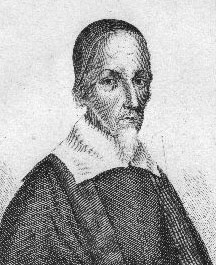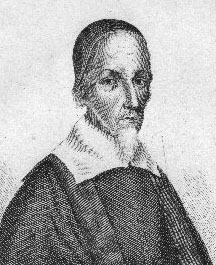His conduct drew upon him several royalist attacks. In his Diary, Pepys (a Royalist!) smugly reports occasions when Barebones's windows were broken by his enemies. According to the records of St Andrew's Holborn, Barebones was buried at 'ye ground near ye Artillery', i.e. Bunhill Fields.
His conduct drew upon him several royalist attacks. In his Diary, Pepys (a Royalist!) smugly reports occasions when Barebones's windows were broken by his enemies. According to the records of St Andrew's Holborn, Barebones was buried at 'ye ground near ye Artillery', i.e. Bunhill Fields.


